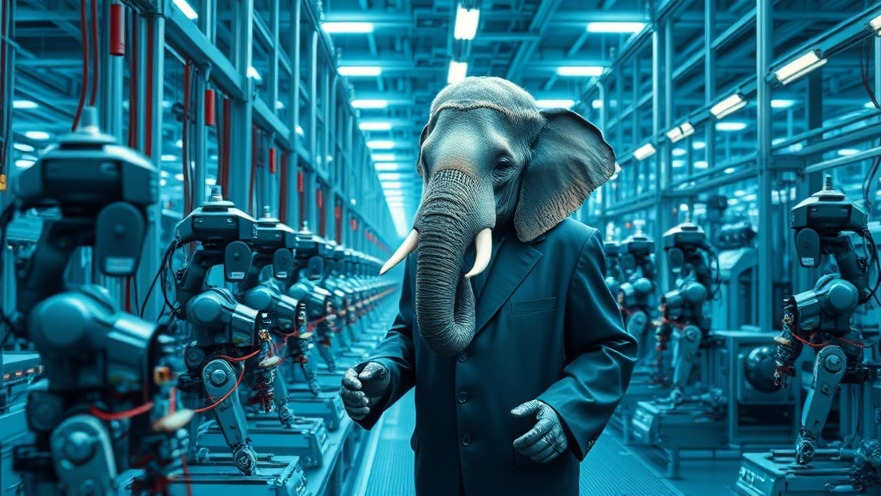
The Coming Wave: AI-Powered Automation Transforming Industries
The landscape of business is rapidly evolving, reshaped by the integration of AI-powered automation. As we peer into 2025, it's evident that the pace of innovation is not merely a phase; it represents a seismic shift influencing various sectors. Industries ranging from retail to manufacturing are utilizing AI to enhance efficiency and improve customer engagement. However, this transformation is accompanied by significant challenges, including ethical implications and potential job displacement.
Understanding the Dual Edges of AI Automation
AI's ability to automate repetitive tasks has become a cornerstone for industries eager to streamline operations. Take, for example, the retail industry, leveraging AI chatbots to enhance customer service while reducing reliance on human labor. Yet, this advancement raises pertinent questions surrounding job automation and workforce dynamics. The rapid integration of intelligent systems could lead to unemployment in sectors least prepared for this evolution, forcing a reevaluation of employment policies and educational systems.
AI in Social Change: Opportunities and Ethical Dilemmas
While AI presents significant advancements, it is also crucial to consider its broader societal implications. As AI technologies permeate various sectors, they introduce nuances that affect social structures, potentially exacerbating inequality. The debate surrounding AI ethics in society is becoming increasingly relevant as we contemplate how to harness technology for social good. Policymakers must grapple with creating frameworks that ensure equitable access to the benefits of AI while safeguarding human rights and liberties.
Future Predictions: Preparing for the Unknown
As industries evolve with AI, the future remains unpredictable. Different sectors will adapt at varied rates, with those embracing change likely to thrive. In contrast, industries stuck in traditional paradigms could face decline. Education and policy changes will be pivotal in guiding societal adaptation, demanding a proactive approach to implement effective workforce training programs. Significant investment in public discourse about AI development will be essential to reduce societal challenges and prepare for the next generation of workers.
The Role of Policymakers in Shaping AI's Trajectory
The responsibility lies primarily with policymakers, educators, and innovators to craft a vision for an AI-integrated world that prioritizes ethical considerations. By fostering environments conducive to discussion and ethical training, the aims of harnessing AI for public benefit can be realized while mitigating the risks of social unrest and economic disparity. As we approach 2025, a collective effort is needed to ensure that AI becomes a tool for empowerment rather than division.
Your Next Steps in Understanding AI's Impact
As we delve deeper into AI's societal impact, it’s essential to engage in discussions that frame the narrative around our future with AI. How will your industry adapt to ongoing automation? Staying informed and active in the conversation about AI and its ethical implications will enable individuals to navigate the complexities of an AI-driven society.
 Add Row
Add Row  Add
Add 




 Add Row
Add Row  Add
Add 



Write A Comment